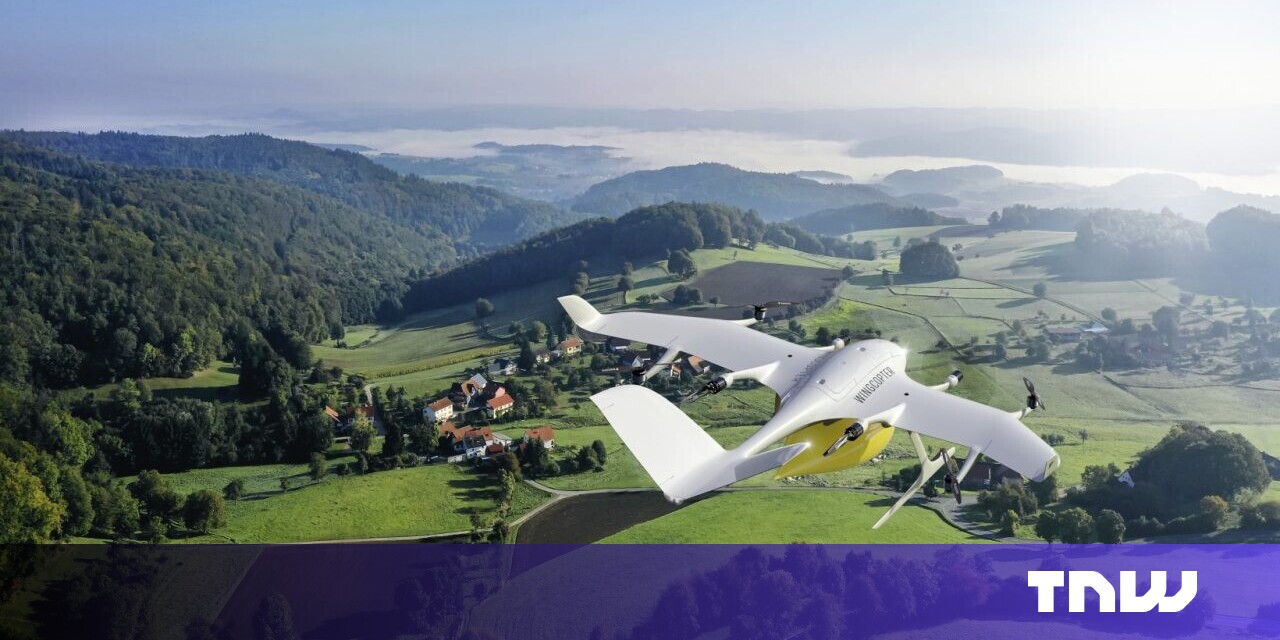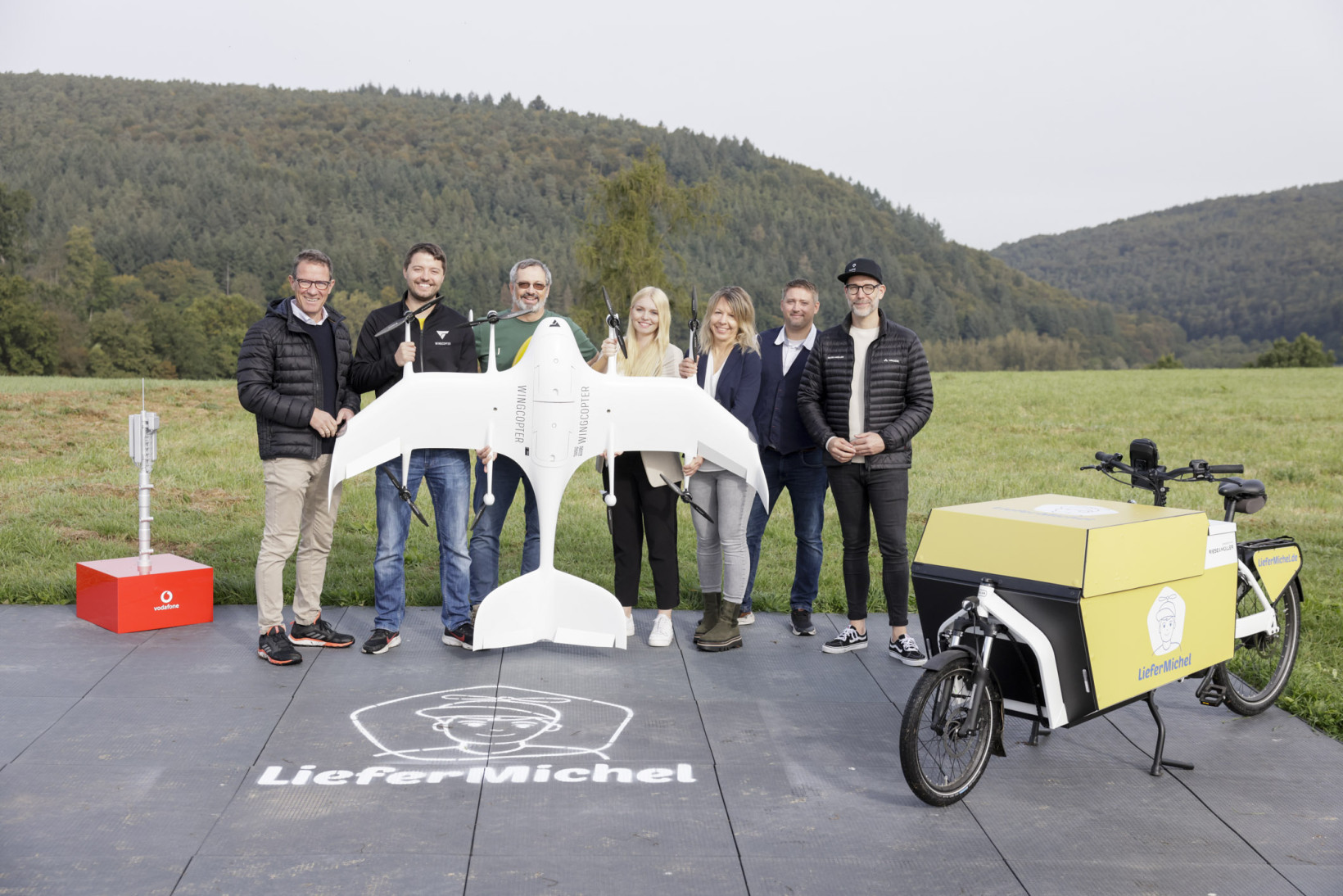
This Thursday, German startup Wingcopter launched a drone and electric cargo-bike delivery project to bring everyday consumer goods to remote rural areas in Central Germany.
Just as with ordinary grocery delivery, customers in Michelstadt, Hesse, will be able to place their orders via a website and decide on a convenient delivery time slot. Autonomous Wingcopter drones will then deliver non-perishable products from a local supermarket to a drop-off point outside of villages. The final stretch to the customer’s door will be covered by cargo-bikes (with human) from e-bike producer Riese & Müller.
Initially, the pilot project, named “LieferMichel,” will offer non-perishables from the local REWE supermarket (one of Wingcopter’s backers), with the intention of adding more retailers if the project proves successful.
“We are really proud to pilot LieferMichel, the first drone delivery service for groceries and everyday goods in Germany,” said Tom Plümmer, CEO of Wingcopter. “Our biggest goal is to gain experience and evaluate, together with the residents, an environmentally friendly and efficient service that creates real added value for the population in rural areas.”

Wingcopter is conducting the Drone-Cargo Bike Express Delivery (DroLEx – Drohnen-Lastenrad-Express-Belieferung) project in collaboration with the Frankfurt University of Applied Sciences (Frankfurt UAS). The pilot is funded by the German Federal Ministry for Digital and Transport (BMDV), as part of a broader “Innovative Air Mobility” funding directive of €430,000. The LieferMichel pilotwill initially run until the end of 2023.
Grocery delivery just one of many air mobility use cases
Founded in 2017 by Plümmer and co-founders Jonathan Hesselbarth (CTO) and Ansgar Kadura (CSO), Wingcopter makes uncrewed all-electric delivery drones and also provides drone delivery services. Backed by the European Investment Bank, REWE Group, and Salvia, among others, the Darmstadt-based company currently employs 150 people.
Its latest drone is the Wingcopter 198, built on patented tilt-rotor technology that makes it withstand strong winds and rain as it goes about its mission. It has a payload capacity of up to 5kg, range up to 110km, wind resistance of 15m/s average, and 20m/s gusts, and a default cruise speed of 100km/h.
It is also equipped with a redundant system architecture of dual airspeed sensors, dual heading and positioning systems, and dual flight controllers.
Zero-emission grocery delivery options may indeed prove to be vital for the survival of remote rural areas in the future. However, Wingcopter’s product has several other use cases. The company has already deployed its drones for on-demand medical delivery to remote islands in Vanuatu and Ireland, volcano inspection in Italy, and infrastructure inspection in Norway, among other projects.
To see one of Wingcopter’s drones in action (and catch a glimpse of German rural landscapes) watch the video below.






